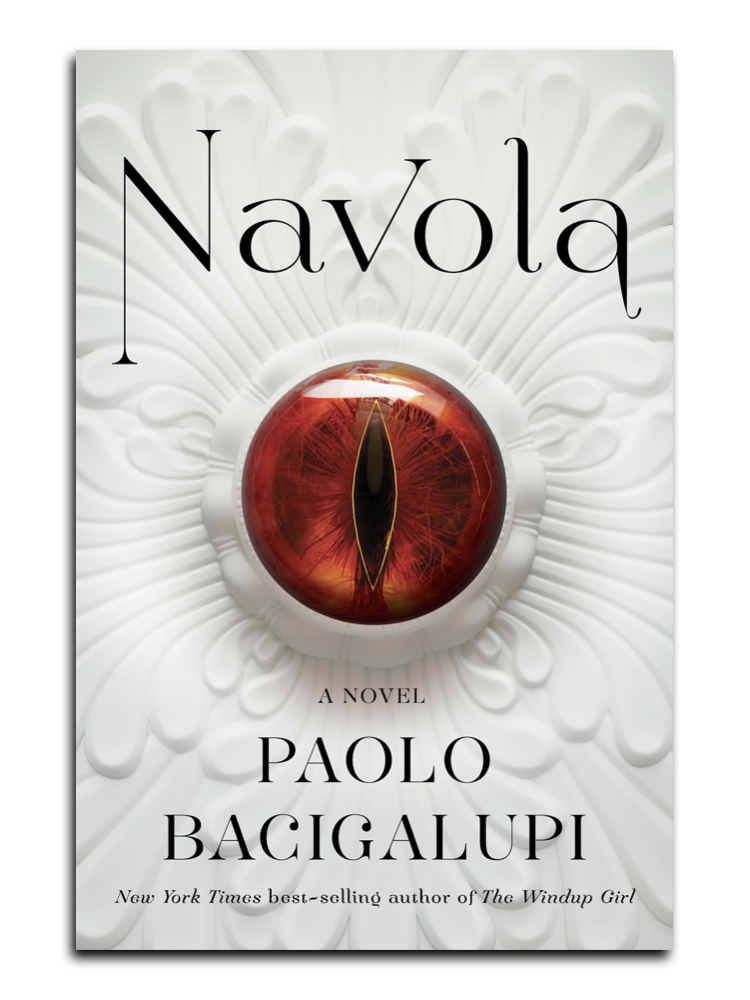Navola by Paolo Bacigalupi
Navola is a purported “literary” fantasy set in a city-state dominated by powerful merchant families. The story follows Davico di Regulai, a young member of one such powerful family, as he navigates the political struggles of Navola, and as he prepares to take over his family's [accounting] empire. Davico faces rebellion and intrigue, with his fate apparently intertwined with both a dragon relic and his adopted sister, Celia.
The opening is weighed down by all the world-specific terms and names, based heavily on an Italian-Latin root system. It’s a lot to take in at once and hard to keep track of them all. It doesn’t NOT feel like when someone in a comedy is speaking nonsense pseudo-Spanish by amending each and every English word with -o. It’s unfortunate that it’s so liberally applied, because it gives an easy springboard into the desire to skim-read.
The narrative style is also somewhat unusual, though I feel like we’re seeing this more and more often, as of late, as the author directly addresses the reader with “you.” This choice might work in certain contexts, but here it adds to the overall confusion without providing much clarity or immersion.
Despite being set in a fantasy world with an Italian city-state foundation, Navola doesn't deliver a compelling plot or strong character development. Davico is the typical empty vessel that many main characters of this kind of fantasy novel with a historical bent seem to favor. But I think Bacigalupi takes it too far and Davico really needed some proper fleshing out and purpose. Without an anchor of some kind of conflict — at least for the first half of this nearly 600 pager, the story seems aimless, neither driven by events nor by deep character arcs, as if uncertain of its own direction and intention.
That dragon's eye, prominently featured on the cover and in the book's opening, turns out to be a minor element in the narrative. It is briefly mentioned as a relic or a fossil, and some bits of lore are bandied about here and there, but it’s basically a glorified paperweight for the majority of the book. Such a missed opportunity to develop a more intriguing fantasy element, instead clearly setting up the rest of the books more than allowing this book to stand on its own. Overall, a challenging, cumbersome read that doesn’t quite achieve its potential.
I received this book for free from the publisher via NetGalley in exchange for an honest review. This affected neither my opinion of the book nor the content of my review.

